- Home
- Bryce Courtenay
The Potato Factory Page 3
The Potato Factory Read online
Page 3
Waterloo Smith's fur was matted and covered in fresh dirt, suggesting that Samuel, finding the dead cat in the lavender bushes, had contrived a hasty burial in some remoter part of the kitchen garden, but that later his conscience got the better of him and he'd repented by laying the dead cat at the feet of the cook.
Later at the inquest held in the library, Mr Bishop, seeking to console Nanny Smith, opened the proceedings by suggesting that the unfortunate creature might have died from natural causes – a fit, or convulsions or similar which had by natural movement catapulted Waterloo Smith from the window ledge?
However, the dead cat's distraught owner, red-eyed from weeping, wouldn't countenance this suggestion and declared flatly that her darling had been brutally murdered.
Nanny Smith glared meaningfully at Mary, who had been summoned to the library together with the other upstairs servants. 'We all know who the murderer is, don't we?' she sniffed and then buried her head in her hands and wept copiously.
Turning to Mary, Mr Bishop enquired, 'Mary, the room in which Waterloo Smith was last seen is your responsibility to clean. Did you see the cat on the window ledge?'
'I saw 'im, Mr Bishop! But I swear to Gawd I never laid a finger on 'im! I swear it on me dead mother's grave!'
With no further evidence to go on, Mr Bishop terminated the proceedings and Waterloo Smith's murderer, if such a person existed, was never apprehended. In fact, Mr Bishop had been correct in the first place; Waterloo Smith had suffered a violent fit followed by a stroke, the contractions of which had thrown him from the sun-bathed window sill to a merciful death in the lavender bushes four storeys below.
However, Nanny Smith was not to be thwarted and she caused such a disturbance with the master and mistress of the house that the butler was summoned and Mary, despite her protestations of innocence and Mr Bishop himself believing her not guilty, was stripped of her starched pinny and mob cap and banished below stairs to the laundry.
The laundry was the most onerous task among the skilled domestic duties and therefore the most humble and disliked. But Mary, who had never been afraid of work, discovered that if she worked hard she had time for reading and for practising her handwriting. Besides, the laundry was the warmest place in the big cold house and, like most children from the rookeries, she suffered greatly from chilblains.
Mary remained in the laundry for three years, even taking pride in her work, in starching and ironing, removing stains by bleaching with the juice of lemons and in mending, so that she became a useful, though not excellent, seamstress. By this time her reading and writing skills were much enhanced and she had graduated from the penny papers that pandered to the taste of the lower classes for bloodthirsty plots and overblown romances, to serious literature. Mr Bishop, feeling guilty for having politely complied with her demotion to the laundry without positive proof that she had pushed the cat from the window sill, negotiated for Mary to use the master's library. The master had agreed to this, providing the books were always taken from the shelves in his presence and after he had closely inspected the state of her hands.
It was in books that Mary discovered a world beyond any of her possible imaginings – Defoe's Robinson Crusoe and Jonathan Swift's Gulliver's Travels which she especially liked and read many times, quoting often from it to Mr Bishop; Thackeray, Macaulay, an excellent English translation of Cervantes' wondrously mad Don Quixote, Jane Austen and Fanny Burney. All these and a host of others she devoured with a great thirst for knowledge.
While reading became her abiding passion, Mary did not connect the lives of the people she read about in books with her own. Her earlier life had been difficult and the people about her for the most part poverty-stricken, dulled and witless from lack of proper sustenance and the absence of any education. That is, apart from the kind needed to survive among thieves, scoundrels and villains. From a young age she knew the world to be a wicked place and had learned to defend the small space she occupied in it with her teeth and nails.
However, the human mind has the fortunate capacity to forget pain and misery. Mary had been in the protected environment of a domestic servant in a big house from the age of eleven, so by the age of twenty she had all but buried the turmoil of her younger years. The sheltered life she now led meant she had gained little additional experience of the adult world other than the hurriedly taken copulative embraces thrust upon her by two of her past masters and the infinitely more pleasant, though inexperienced, couplings with the young master of the last employer.
Mary did not regard these hasty assignations as the same act of fornication she had observed against the walls in alleys or on the dark stairwells of shared lodgings or in the nesting midnight rooms, occupied by three destitute families, in which she and her father had been reduced to living in the years before she'd entered domestic service.
Some unknown affliction in childhood had rendered Mary sterile, not that she even equated the hasty love-making with her betters with the act of childbirth. Despite the presence of children in the houses in which she'd served, if she'd thought about it at all, she would perhaps have concluded that the idle rich had their children conveniently delivered by a stork, the evidence of this being ever present on the nursery wall. That the better classes should employ the same vile animal instincts which had been such a familiar aspect of her childhood would have seemed to her unthinkable.
In fact, Mary was both streetwise and naive all at once. While she longed for romance she knew in her heart that it was not intended for her kind, that doing it in some privacy with a clean and half-decent someone was the best she could hope for. Her body developed into a very desirable womanliness, and she would often feel the ache to use it other than by the deployment of her probing and urgent fingers.
Her moment came one morning at Shepherd Market in nearby Mayfair where she had been sent by Mrs Hodge to purchase the master's luncheon sole, Billingsgate being too far to walk and the coachman out with the mistress of the house all morning.
'Take the one wif the clearest eyes, lovey.' The young man pointed to a fish which lay upon a block of ice slightly to one side. 'That one! See the eyes, clear as a gypsy's crystal.'
Mary turned towards the voice and its owner smiled, showing two missing front teeth with the eye tooth on either side framing the gap and capped with gold. It was a smile devoid of any calculation, though mischievous enough.
Mary found herself smiling back, even though more prudent behaviour was called for from a servant girl in a nice house involved in a casual meeting with a strange man. She found herself immediately taken by the flash young man standing beside her and her heart beat in quite the strangest manner.
The possessor of these two astonishing gold teeth was flash in other ways too and wore a fancy corduroy waistcoat with a watch chain. His ankle boots, below a fashionable pair of breeches, were stitched with patterns of hearts and roses. His cloth coat with contrasting plush lapels was clean and carried large expensive pearl buttons and was cut to the back into heavily braided calf-clingers with an artful line of buttons at their extremity. On his head he wore a beaver-napped top hat that looked to be in excellent order, its nap neatly brushed and shining.
'Name o' Bob Marley, pleased to meetcha,' he'd said in a single breath, giving her another big grin which caused his incisor teeth to once more gleam and flash. 'Honoured to make yer acquaintance, Miss…?'
Mary had observed that he hadn't once taken his eyes away from her face and unlike most men with whom she had the slightest passing acquaintance, hadn't allowed his eyes to wander over those parts of her anatomy which usually brought a glazed look into their eyes and a gravel tone in their voices. His smile was ingenuous, quite open and impossible to resist.
'Mary,' she said simply. 'Them's lovely teeth,' she added, smiling.
Bob Marley jabbed a finger at his mouth, 'Like 'em does ya? Eighteen carat, that is! Pure gold, can't get none better!'
Bob Marley cast his eyes over Mary's firm breasts and trim waist, an
d in an unabashed voiced declared, 'What a corker! Care for a drop o' ruin?' He indicated the public house with a toss of his head. 'Come on then, I'll buy ya a taste o' whatever's yer fancy, gin is it, or a pint o' best beer?'
Mary, though sorely tempted, could not accept his invitation for fear of upsetting Mrs Hodge by being late and returning to the house with the smell of strong spirits on her breath. She was not accustomed to drink, though on the rare occasions when, on a public holiday, she'd ventured out with Mrs Hodge, she'd found gin left her very excited in a physical sort of way.
'I'll not be seen with a costermonger,' she said tartly, this seeming the best way to end a relationship where she was already beginning to feel at a distinct disadvantage. She noted too that her breasts were heaving and she was finding it difficult to breathe.
Bob Marley drew back with an exaggerated expression of hurt. Cocking his head to one side, his mouth turned down at the corner, he looked down at his chest as though closely examining his apparel. 'Costermonger? Not bleedin' likely, lovey.' He patted a velvet lapel. 'This is me disguise. I'm what ya might call an hoperator, I do a bit o' this and a bit o' that, finding' a bit 'ere and disposin' of it over there, if ya knows what I mean?'
'Oh, a tout?' Mary shot back, bringing her fingers to her lips as she tried to contain her laughter.
'Well not exactly that neiver, jus'… well… er,' he smiled his golden smile, 'an hoperator!' He seemed disinclined to further discuss the subject of his occupation.
'Well, what 'bout yer place, then?' Bob Marley said cheekily tugging on his watch chain and taking Mary by the elbow.
'Who do you think I am? I ain't no dollymop! Shame on you, Bob Marley!' Mary pulled her arm away from him. But then she laughed, enchanted by the young rogue standing beside her. 'You can walk me 'ome and no touchin', that's all I'll promise for now.'
By the time they reached the house in Chelsea Mary was completely smitten by the young rogue. She kept him waiting in the lane at the back of the house while she unlocked the stout door set into the kitchen garden wall, whereupon she went directly into the kitchen to deliver the sole to Mrs Hodge, who, predictably, scolded her for the time she had taken on her errand.
Mary's heart pounded in her breast as she returned down the garden path to open the garden door and let Bob Marley within the precincts of the kitchen garden. Quickly locking the door behind him, she led him into the laundry.
Now, with less than half an hour having passed, fat Mrs Hodge stood over Mary's half-naked body having hysterics and crying out in alarm at the astonishing gymnastics taking place on a pile of dirty linen at her feet.
Bob Marley was the first to react. Frantically pulling on his breeches and snatching up his embroidered boots, he jumped to his feet and fled the scene, knocking aside the stout cook with his shoulder and escaping into the kitchen garden. Not bothering to test the door set into the garden wall, he threw his boots over the top into the lane beyond and, quick as a rat up a drainpipe, scrambled after them, stubbing his toe badly in the process, pausing only long enough on the other side to retrieve his boots before making good his escape down the lane and into the Kings Road beyond.
Mary found herself dismissed from her place of employment without references or even the wages due to her. Not an hour after her interrupted dalliance with Bob Marley she stood in the lane outside the rear of the large Chelsea house, her sole possessions the small wicker basket at her feet and her precious abacus under her arm. She glanced up at the big house and observed the odious Nanny Smith looking down at her from a top window. When the old woman realised Mary had seen her she leaned further out of the window and commenced to hiss in much the same manner as Waterloo Smith had done.
'The pox on you, you old cow!' Mary shouted up at her and then, picking up her basket, she proceeded to cross the lane. Then turning once again to look up at Nanny Smith, she yelled, 'I pushed your bloody cat off the window sill with me broom, it done two somersaults before it splattered on the ground!'
Then, head held high and without further ado, Mary proceeded in the direction of Hyde Park, not knowing why she'd bothered to lie to the old crone and not even sure why she had chosen this direction from any other, thinking only that she would find a quiet spot under one of the giant old beech trees and try to sort things out in her head.
Mary's future lay in tatters. She found a bench beside the Serpentine adjacent to a willow which hid her presence from passers-by. But no sooner was she seated than a dozen small brown ducks glided towards her, their webbed feet paddling frantically below the surface to give their smooth little bodies the look of effortless gliding. It was clear that they anticipated food from the wicker basket.
When Mary saw the ducks, quacking and fussing at the edge of the water, she realised Mrs Hodge hadn't even offered her a morsel to eat. A stern Mr Bishop had bid her pack her things and had shown her the door in the kitchen garden. Then, to Mary's enormous surprise, just as he was closing the door behind her, Mr Bishop pressed a small parcel upon her and announced in a deeply injured tone, 'You are ruined, my girl, utterly and completely ruined!' He paused and then added in the same melancholy voice, 'Now I simply cannot propose marriage to you.'
The door had closed behind her before Mary could fully comprehend this curious protestation. Mr Bishop had never entered the smallest part of her amorous imaginings, nor had he, perhaps with the exception of the obtaining of books from the master's library, shown any inclination to be especially kind to her. She placed the squarish parcel absently within her basket.
Now hungry and with nowhere to go, Mary started to weep softly. Although truthfully her tears were more for the warmth and security of Mrs Hodge's kitchen and the steaming plates of food so regularly placed in front of her than they were for love's labour lost with Bob Marley or, for that matter, Mr Bishop.
After a while Mary wiped her nose and dried her reddened eyes. 'C'mon, girl, cryin' never got a day's work done,' she said to herself, repeating a phrase she had heard so often as a little girl coming from her overburdened and sad-faced mother. She thought then for the first time about the parcel the butler had handed to her. Removing it from her basket she removed the wrapping to reveal the book Gulliver's Travels, quite her favourite. She smiled, feeling somewhat better towards life and the clumsy man whose marriage prospects she had so inadvertently ruined. Picking up her abacus and wicker basket, she crossed the park in an easterly direction to St Giles, where she knew from bitter experience she could obtain cheap lodgings.
Chapter Three
It would be nice to report that Mary's literacy skills and excellent penmanship, together with her wizardry with numbers, led to a new and fortunate life. Alas, these were not skills required of a woman at that time and most certainly not of a woman of her class. In the next six months she wore out a pair of stout boots in an effort to obtain employment as a clerk. She was always the lone woman in a long queue of applicants for a position advertised, and she soon became the butt of their cruel male jokes.
Furthermore, her abacus was the cause of much hilarity among the prospective clerks. Mary's persistent presence in the line of men would soon lead to her being known to them by the nickname Bloody Mary. This came about after an incident when a tall, very thin young man with a pale pinched face and sharp rodent teeth, wearing a battered top hat that resembled a somewhat misshapen chimney stack, snatched Mary's abacus from her. He held it in front of her face announcing to the men in the line, 'See, gentlemen, a monkey, a lovely little monkey in a cage playin' at being a clerk with pretty beads!'
It was a feeble enough joke but one which nevertheless brought some hilarity to the anxious line of unemployed men eager for any sort of distraction to alleviate the boredom. Mary snatched her abacus back from the ferret-faced clown and, lifting it, slammed it down upon the young comic's head, causing the top hat he wore to concertina over his eyes and halfway along his narrow snotty nose. This created a great deal more hilarity in all but the unfortunate owner of the hat who, up
on removing the object of their mirth and pulling and bashing it back into some semblance of its original shape, placed it again upon his head, then delivered a vicious blow to Mary's nose before running from the scene.
Mary's nose had not yet stopped bleeding by the time it became her turn for an interview. The chief clerk, a coarsely corpulent man with a sanguine complexion and the remains of fiery red hair on the sides of a completely bald pate, looked at her with disapproval, shaking his head in a most melodramatic manner. 'What's the name, girl?' he asked.
'Mary, sir, Mary Klerk.'
'Bloody Mary, more like!' The men in the queue laughed uproariously at this joke. 'G'warn scarper! Be off with you, girl. 'Aven't you been told, clerkin's a man's job!'
The men clapped and cheered him mightily and pleased with their response the chief clerk played further to the crowd, for he'd witnessed the earlier incident with the clown in the top hat. 'What's to become of us if we allow a monkey on our backs?'
There is precious little charity in a queue of starving men, most of whom had a wife and young ones to feed, and soon upon Mary's arrival in any employment queue, a familiar chant would go up: Mary, Mary, Bloody Mary Who does her sums on bead and rack Go away, you're too contrary You're the monkey, the bloody monkey You're the monkey on our back!
The chant was to become such an aggravation that few prospective employers were prepared to even grant her an interview for fear of angering the men. The men, in turn, found it impossible to understand why a woman with a trim figure, of Mary's young age and class, could not make a perfectly good living on her back. More and more they came to regard it as entirely reprehensible that she should attempt to steal the bread from their mouths and allow their children to starve and, moreover, that she should attempt to do so with the help of a foreign and heathen contraption made of wood, wire and beads. They told themselves that a screen that quivered and rattled and ended up doing sums had a distinct smell of witchcraft about it.

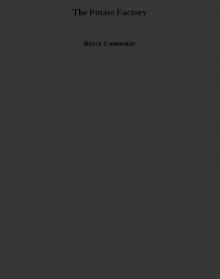 The Potato Factory
The Potato Factory The Power of One
The Power of One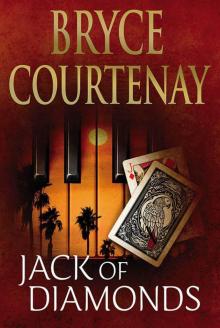 Jack of Diamonds
Jack of Diamonds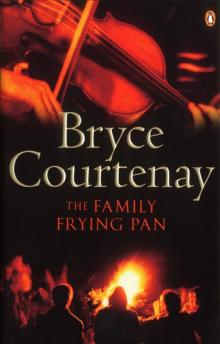 The Family Frying Pan
The Family Frying Pan April Fool's Day
April Fool's Day Smoky Joe's Cafe
Smoky Joe's Cafe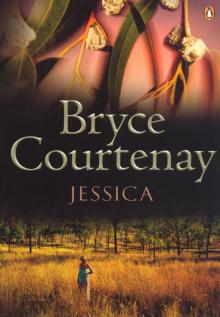 Jessica
Jessica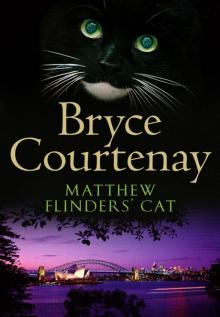 Matthew Flinders' Cat
Matthew Flinders' Cat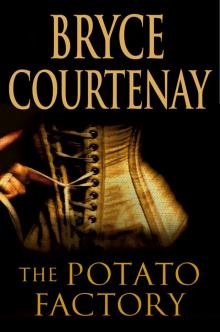 Potato Factory
Potato Factory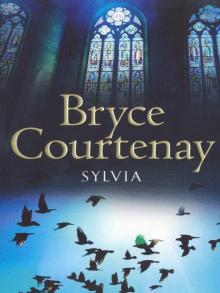 Sylvia
Sylvia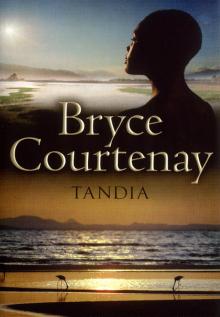 Tandia
Tandia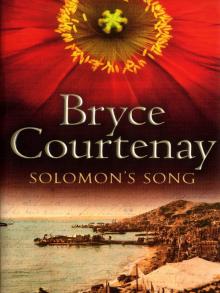 Solomon's Song
Solomon's Song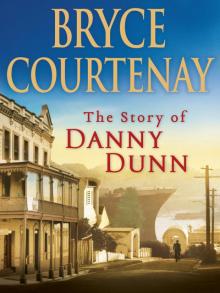 The Story of Danny Dunn
The Story of Danny Dunn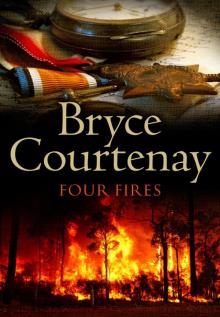 Four Fires
Four Fires Whitethorn
Whitethorn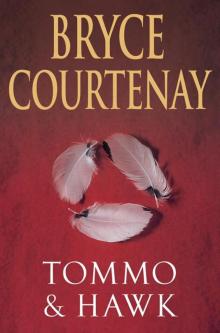 Tommo and Hawk
Tommo and Hawk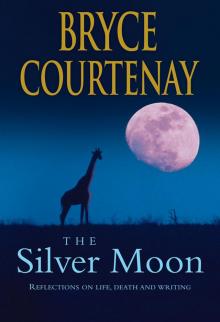 The Silver Moon
The Silver Moon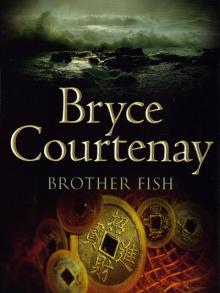 Brother Fish
Brother Fish FORTUNE COOKIE
FORTUNE COOKIE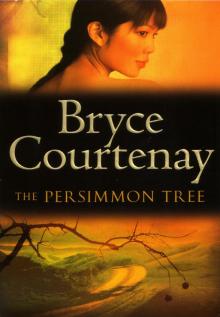 The Persimmon Tree
The Persimmon Tree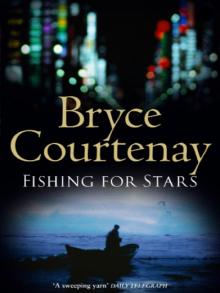 Fishing for Stars
Fishing for Stars